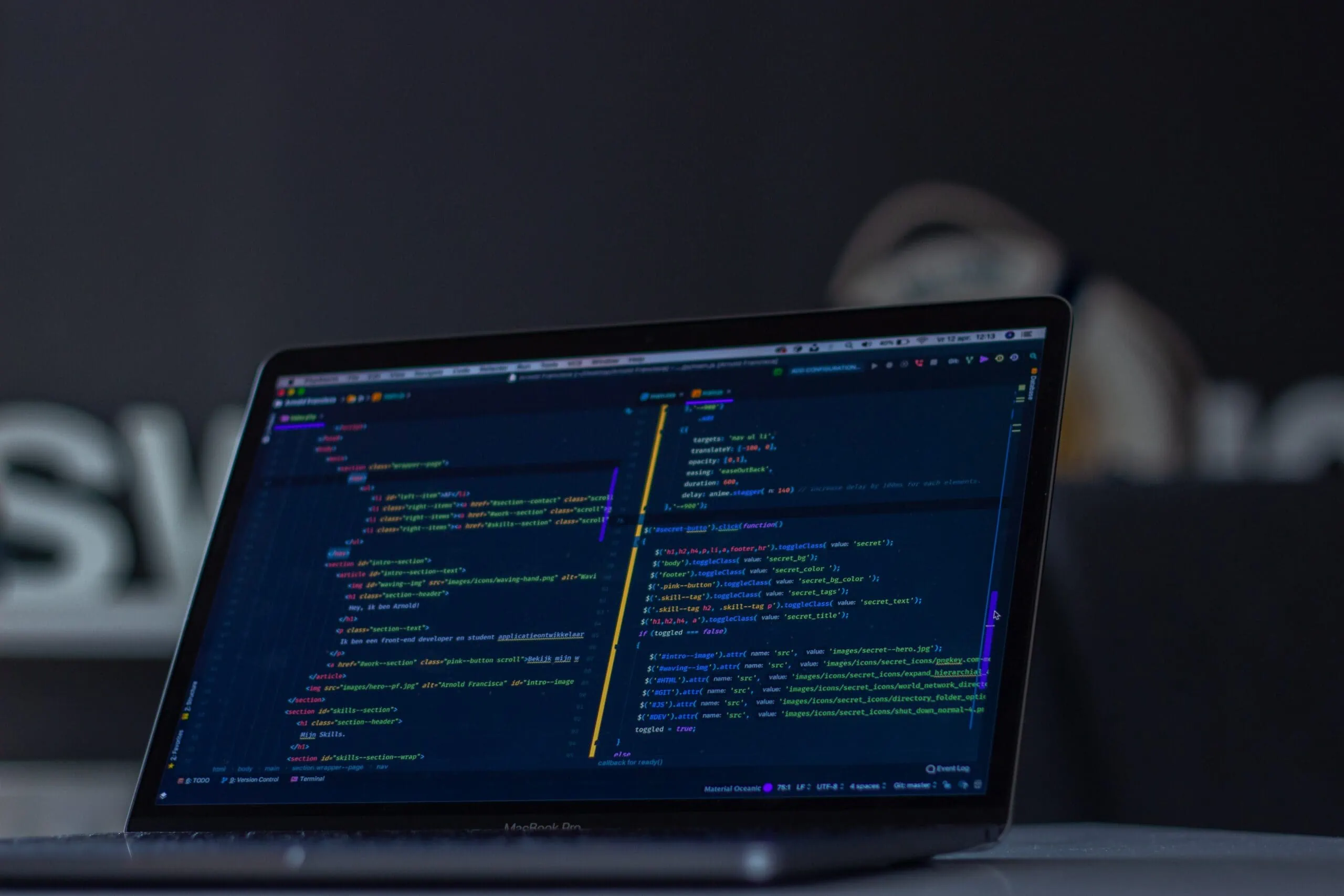Introduction: How Cybersecurity Affects Modern Management and Leadership Strategies
As technology continues to advance, the importance of cybersecurity and its impact on modern management and leadership strategies cannot be overstated. Cyber threats have become a major concern for businesses and organizations worldwide. From data breaches to ransomware attacks, the consequences of these cyber threats can be devastating, both financially and reputation-wise. Therefore, it is imperative for modern leaders and managers to prioritize cybersecurity in their strategies.
In today’s digital age, cybercriminals are constantly seeking new ways to exploit vulnerabilities in technology systems. As a result, businesses must take proactive measures to prevent cyber attacks and protect sensitive data. This requires a comprehensive cybersecurity strategy that includes regular risk assessments, employee training, and the implementation of the latest security technologies. By prioritizing cybersecurity, modern leaders and managers can safeguard their organizations against cyber threats and ensure the continued success of their businesses.

Cybersecurity Threats and their Impact on Business Operations
Cybersecurity threats have become a major concern for businesses of all sizes. With the increasing reliance on technology, businesses are more vulnerable to cyber attacks than ever before. These attacks can cause significant damage to a company’s operations, reputation, and bottom line.
One of the most common cybersecurity threats is phishing. This is when cybercriminals send emails or messages that appear to be from a legitimate source, such as a bank or a vendor. The goal is to trick the recipient into providing sensitive information, such as login credentials or financial data. This can lead to data breaches, financial losses, and damage to a company’s reputation. Other threats include malware, ransomware, and social engineering attacks. It is important for businesses to stay vigilant and implement strong cybersecurity measures to protect themselves from these threats.

The Role of Cybersecurity in Mitigating Reputation Risk
Businesses face a significant risk to their reputation from cyber attacks. Cybersecurity is essential in protecting sensitive data and preventing data breaches, which can lead to a loss of trust and damage to a company’s reputation. A data breach can result in a loss of customer data, financial information, and intellectual property, leading to a loss of customers and revenue. Therefore, it is crucial for businesses to implement cybersecurity measures to mitigate the risk of reputation damage.
Cybersecurity measures can include implementing firewalls, antivirus software, and intrusion detection systems to prevent unauthorized access to sensitive data. Additionally, businesses should train their employees on cybersecurity best practices, such as using strong passwords and avoiding suspicious emails and links. Regular security audits and risk assessments can also help identify vulnerabilities and areas for improvement. By implementing these measures, businesses can reduce the risk of a data breach and protect their reputation from potential damage. In conclusion, cybersecurity plays a crucial role in mitigating reputation risk, and businesses should prioritize implementing strong cybersecurity measures to protect their sensitive data and maintain customer trust.

The Connection Between Cybersecurity and Employee Productivity
As businesses continue to rely more on technology to conduct their day-to-day operations, the importance of cybersecurity cannot be overstated. Cybersecurity breaches can lead to data loss, financial losses, and even reputational damage. However, there is another aspect of cybersecurity that is often overlooked – its impact on employee productivity.
When employees are not confident in the security of their workplace technology, they may hesitate to use it to its full potential. This can lead to wasted time and decreased productivity. On the other hand, when employees feel that their workplace technology is secure, they are more likely to use it to its full potential and be more productive. Therefore, it is crucial for businesses to prioritize cybersecurity as a means of promoting employee productivity. By investing in cybersecurity measures and educating employees on best practices, businesses can create a secure environment that allows employees to focus on their work and be more productive.

The Intersection of Cybersecurity and Regulatory Compliance
In today’s world, cybersecurity and regulatory compliance are two of the most important concerns for businesses. Cybersecurity refers to the measures taken to protect computer systems and networks from unauthorized access, while regulatory compliance refers to the adherence to laws and regulations governing a particular industry. The intersection of these two areas is where businesses must focus their efforts to ensure that they are both secure and compliant.
One of the biggest challenges facing businesses today is the constantly changing landscape of cybersecurity threats and regulatory requirements. As new technologies emerge, so do new threats, and businesses must be able to adapt quickly to stay ahead of the curve. Additionally, regulatory requirements are constantly evolving, and businesses must stay up to date on the latest changes to ensure that they are in compliance. By focusing on the intersection of cybersecurity and regulatory compliance, businesses can ensure that they are not only secure but also compliant with all applicable laws and regulations.

The Need for Cybersecurity Training for Management and Employees
Cybersecurity is a critical issue for organizations of all sizes. With the increasing number of cyber attacks, it is essential for businesses to take proactive measures to protect their data and systems. One of the most effective ways to do this is by providing cybersecurity training to management and employees.
Cybersecurity training can help employees understand the risks associated with cyber threats and how to identify and prevent them. It can also equip them with the knowledge and skills needed to respond to a cyber attack quickly and effectively. Additionally, training can help management understand the importance of cybersecurity and the steps they need to take to ensure their organization is protected. By investing in cybersecurity training, businesses can reduce the risk of cyber attacks and protect their reputation, customers, and bottom line.

The Cost of Cybersecurity Breaches and its Effect on Business
Cybersecurity breaches can have a devastating impact on businesses. Not only can they result in financial losses, but they can also damage a company’s reputation and erode customer trust. The cost of a cybersecurity breach varies depending on the size of the company and the severity of the attack, but it can be significant. According to a recent report, the average cost of a data breach is $3.86 million.
In addition to the direct financial costs, cybersecurity breaches can also have indirect costs. For example, a company may need to invest in new security measures or hire additional staff to prevent future breaches. There may also be legal fees and regulatory fines to consider. Furthermore, a cybersecurity breach can damage a company’s reputation, which can result in lost business and decreased revenue. Therefore, it is crucial for businesses to take cybersecurity seriously and invest in robust security measures to protect their assets and reputation.

Conclusion: How Cybersecurity Affects Modern Management and Leadership Strategies
How Cybersecurity Affects Modern Management and Leadership Strategies? The importance of cybersecurity in modern management and leadership strategies cannot be overstated. With the increasing reliance on technology and digital systems, businesses and organizations are more vulnerable to cyber threats than ever before. Cyber attacks can result in significant financial losses, damage to reputation, and even legal consequences. Therefore, it is essential for leaders to prioritize cybersecurity in their decision-making processes.
Effective cybersecurity measures require a comprehensive approach that involves both technical solutions and employee training. Leaders must ensure that their organizations have the necessary resources and expertise to implement and maintain robust cybersecurity measures. Additionally, they must foster a culture of cybersecurity awareness and responsibility among their employees. By prioritizing cybersecurity, leaders can protect their organizations from cyber threats and ensure their long-term success in the digital age.






